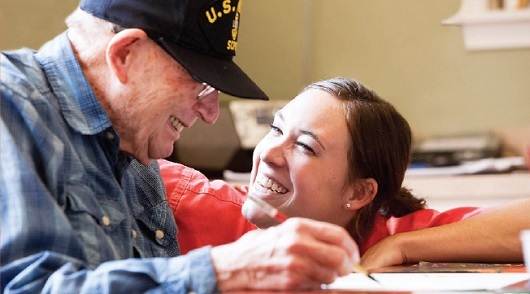
It is difficult to fathom that the ones closest to you may actually be the ones trying to exploit you, but it happens. According to the U.S. Department of Justice, “the most frequent form of abuse is unauthorized spending by relatives without the senior’s permission”. Usually, when one worries about senior fraud, it is about devious schemes using emails and phone calls to rob seniors of their money. It is disheartening to have to consider those closest to you as a potential threat, but it is something all seniors should be aware of. Below are some things to consider about fraud from within your own family.
1. Decreasing Care in order to Increase the Will
One of the sneakiest forms of fraud occurs when family members convince their elderly loved one to choose a lower level of care than what is required, or even offer to do the job themselves. Does not initially sound like fraud, does it? However, when you consider the intent, it is easy to see why this is a devious swindle. You see, these family members are fully aware that the cost of senior care (home care, senior living, etc.) can be very expensive and adds up over time. So if they can convince their elderly loved one that less care is required, then there will consequently be more money left over upon their death in the will. Statements such as “the doctors are just trying to trick you” or “you are not in as bad of shape as they make it seem,” are typical indicators that your family may not have your best interests at heart. Sacrificing a loved one’s health and wellness in order to gain a profit is a form of fraud!
2. Small Purchases/Transactions
As we already stated, the most common form of elder abuse stems from family members spending seniors’ money without their permission. Roughly half of seniors over the age of 80 suffer from some form of dementia or cognitive decline, and often this is taken advantage of. It may start with just ordering a pizza, or rifling through your wallet or purse when you are not watching. Credit and debit cards are easy to abuse, and loved ones may be making small transactions to see if you notice. Small transactions can be missed because they are insignificant at first, but over time they can add up and cause real detriment to a senior’s financial situation.
3. Competing Family Members
Another thing to be skeptical about are family members conniving their way to your heart. Wills and estate inheritance are touchy subjects. Sometimes family members will do unthinkable things to get a bigger slice of the pie. Speaking from personal experience, it was a debacle when my grandparents passed. They had 10 children, and it pretty much turned into a free for all upon my grandparents' death. My mother was never very fond of some of her siblings, and this did nothing to elevate them in her eyes. So be aware if a family member is degrading other family members to you.
Warning Signs
- Substance Abuse. Addiction can make people do terrible things.
- Change in lawyer, financial advisor, or mailing address.
- Sudden isolation from friends and family.
- Change in financial spending.
This was a tough subject to write about, because I, like I’m sure many of you, would never want any of this to happen. But, as stated above, it is the most common form of elder abuse, and it is worth considering. So, whether we want to or not, it is something we need to at least be aware of.
Written by Nick Schaller with Senior Directory, LLC


Comments